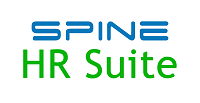Description

GCPAY

Rise
Comprehensive Overview: GCPAY vs Rise
a) Primary Functions and Target Markets
GCPay:
-
Primary Functions: GCPay is primarily a cloud-based construction payment management software designed to streamline and automate the payment application process between general contractors and subcontractors. It provides functionalities for electronic lien waivers, compliance document tracking, and payment reconciliation. It aims to reduce paperwork, enhance accuracy, and improve the overall payment workflow within construction projects.
-
Target Markets: GCPay is targeted towards general contractors, subcontractors, and construction managers who work on large-scale construction projects. It is especially beneficial for organizations managing multiple subcontractor payments, requiring efficient and accurate payment processing, and aiming to reduce administrative overhead.
Rise:
-
Primary Functions: Rise is generally known as a platform focused on employee engagement, performance management, or other areas depending on the specific context. In various markets, "Rise" may also refer to human resources solutions that deal with aspects like payroll, benefits administration, and talent management. It often serves the role of improving internal communications and enhancing workforce productivity.
-
Target Markets: The target market for platforms like Rise includes HR departments across diverse industries that aim to enhance workforce management. These platforms cater to medium to large enterprises, seeking to improve HR processes and employee engagement.
b) Market Share and User Base
-
GCPay: Given its niche focus on construction payment management, GCPay holds a significant share within its specific market. The user base consists predominantly of construction firms and project managers. However, exact market share and user base figures are typically proprietary. GCPay is known for its partnerships with large construction companies that require sophisticated payment systems.
-
Rise: Depending on the specific solution referred to, the market share of Rise would vary. In the HR tech domain, the competition is fierce with significant players like Workday, SAP SuccessFactors, and ADP. Therefore, while Rise may have a strong presence, it competes in a crowded market. The user base is diverse, spanning various industries looking for robust HR solutions.
c) Key Differentiating Factors
-
GCPay:
- Industry Focused: GCPay is specifically tailored for the construction industry, with features designed to meet the unique needs of this sector.
- Payment Automation: It offers specialized tools for automating complex payment processes and compliance document management within construction projects.
- Integration with Construction Software: GCPay often integrates with existing construction management tools, making it seamless for companies to incorporate into their workflow.
-
Rise:
- Broad HR Solutions: Rise offers a comprehensive suite of HR management tools, potentially covering everything from recruitment to performance management and payroll.
- Employee Engagement Focus: Many Rise platforms place a strong emphasis on employee experience and engagement, differentiating it in terms of user interface and experience.
- Scalability Across Industries: Unlike GCPay's niche focus, Rise can cater to a variety of industries looking for HR solutions, making it more versatile in application.
Both GCPay and Rise serve critical roles in their respective domains, catering to different needs—GCPay focusing on construction payment processes, and Rise providing comprehensive HR solutions. Their success and differentiation heavily rely on their industry focus and how well they can integrate within existing business processes of their target markets.
Contact Info

Year founded :
Not Available
Not Available
Not Available
Not Available
Not Available

Year founded :
2017
Not Available
Not Available
United States
Not Available
Feature Similarity Breakdown: GCPAY, Rise
When comparing GCPAY and Rise in the context of construction payment and project management software, it's important to understand their core functionalities and how they address the needs of construction professionals. Here's a breakdown of their features and user interface comparisons:
a) Core Features in Common
-
Payment Management:
- Both GCPAY and Rise offer solutions to manage subcontractor and contractor payments efficiently. They help in streamlining the billing process, reducing paperwork, and ensuring timely payments.
-
Compliance Tracking:
- They provide tools for managing lien waivers and ensuring compliance with contractual and regulatory requirements. This includes collecting necessary documentation to prevent legal complications.
-
Integration Capabilities:
- Both platforms typically integrate with popular construction management software and accounting systems to provide seamless data exchange and enhanced project oversight.
-
Document Management:
- They offer features for storing, sharing, and managing project-related documents, ensuring that all stakeholders have access to the necessary information.
-
Reporting and Analytics:
- Both provide reporting tools to track project financials, assess risks, and generate insights that help in decision-making processes.
b) User Interface Comparison
-
GCPAY:
- GCPAY's interface is known for being straightforward and user-friendly, designed with a focus on simplifying the payment workflows and compliance stages for users in the construction industry.
- The interface typically emphasizes ease of navigation, allowing users to quickly learn and function with minimal training.
-
Rise:
- Rise's user interface is also user-centric, but it may offer a different design aesthetic and organizational approach to project management and payment processing.
- Rise usually focuses on a more comprehensive dashboard that can provide broader visibility over project statuses, financials, and compliance tasks.
c) Unique Features
-
GCPAY:
- Specialized Payment Workflows: GCPAY specifically tailors its features towards construction payment processes, providing highly specialized workflows and tools that cater to industry-specific challenges.
- Lien Waiver Automation: GCPAY is often noted for its robust lien waiver automation, which helps in significantly reducing the manual effort involved in managing waivers.
-
Rise:
- Holistic Project Management: While serving payment functions, Rise often positions itself with broader project management capabilities, which might include task scheduling, resource allocation, and more extensive collaboration features.
- Customizable Dashboards: Rise typically offers a higher degree of customization in its dashboards, allowing users to tailor the interface to fit specific project needs and preferences.
Overall, while GCPAY and Rise have several overlapping features, each has its unique strengths. GCPAY is highly focused on automating and streamlining construction payment workflows, whereas Rise might offer more comprehensive project management tools with adaptable user interfaces. Users should evaluate their specific needs in terms of payment processing and project management to determine which product best aligns with their requirements.
Features

Not Available

Not Available
Best Fit Use Cases: GCPAY, Rise
GCPAY and Rise are two distinct platforms, each catering to different needs and industry requirements, particularly in construction and project management sectors. Below is a detailed overview of the best-fit use cases for each:
a) For what types of businesses or projects is GCPAY the best choice?
GCPAY (General Contractor Payment Software) is specifically designed for the construction industry, focusing primarily on payment applications, lien waivers, and compliance management. It is best suited for:
-
General Contractors and Subcontractors: Businesses involved in construction project management can significantly benefit from GCPAY, allowing them to streamline payment applications and manage subcontractor payments efficiently.
-
Large Construction Firms: These firms often deal with complex and high-volume payment processes including compliance with regulations like lien waivers, making GCPAY highly valuable.
-
Projects with Multiple Subcontractors: When dealing with multiple entities needing precise payment tracking and documentation, GCPAY excels due to its robust compliance and documentation features.
-
Firms Seeking Integration with ERP Systems: Companies already using software like Sage, Viewpoint, or other construction management ERP systems find GCPAY’s integration capabilities advantageous.
b) In what scenarios would Rise be the preferred option?
Rise is generally more flexible and might cater to a broader set of industries beyond construction, with use cases that include:
-
Startups and Small to Medium Enterprises (SMEs): Rise can be an effective tool for smaller companies looking for scalable solutions that are not as industry-specific as GCPAY but still offer robust project management and financial tools.
-
Project Management Needs Across Various Sectors: Companies in industries such as IT, marketing, or events management may find Rise's project oversight and collaboration features beneficial.
-
Innovative and Dynamic Work Environments: Businesses that thrive on agility and constant adaptation to change might prefer Rise due to its emphasis on collaboration and flexible project management tools.
-
Organizations Prioritizing User-Friendly Interfaces: Firms needing an easy-to-navigate platform to enhance team productivity and communication might opt for Rise.
d) How do these products cater to different industry verticals or company sizes?
-
GCPAY: Primarily caters to larger construction firms and enterprises highly focused on managing complex payment and compliance processes. Its industry-specific features make it most suitable for the construction vertical, accommodating the unique needs and regulatory requirements of this sector.
-
Rise: Offers a more versatile platform for a wide array of industries and company sizes, allowing small businesses to scale and large enterprises to manage vast projects with efficiency. Its generic project management capabilities mean it is not confined to a single industry and can be adapted for any organization that requires management of tasks, timelines, and team collaboration.
In conclusion, the choice between GCPAY and Rise depends heavily on the specific needs of the business or project. While GCPAY is a niche solution ideal for the complexities of large construction projects, Rise provides broader project management capabilities applicable across multiple industry verticals.
Pricing

Pricing Not Available

Pricing Not Available
Metrics History
Metrics History
Comparing undefined across companies
Conclusion & Final Verdict: GCPAY vs Rise
To provide a comprehensive conclusion and final verdict for comparing GCPAY and Rise, let's evaluate each product based on overall value, pros and cons, and specific recommendations for users trying to decide between them.
Conclusion and Final Verdict
a) Best Overall Value:
GCPAY: This platform is specifically tailored for the construction industry, offering robust solutions for managing payments and streamlining compliance documentation. GCPAY is highly valuable for companies that need to manage a large volume of complex construction billing processes efficiently.
Rise: Rise is generally a more versatile solution, potentially catering to a broader range of industries with its task management, team collaboration, and invoicing features. Its value is significant for businesses that prioritize an all-in-one platform for project management alongside payment solutions.
Final Verdict: GCPAY offers the best overall value for construction-specific needs, particularly for companies dealing with subcontractors, compliance, and complex payment workflows. Rise may offer better value for companies looking for a broader range of project management features and team collaboration tools, not limited to the construction sector.
b) Pros and Cons:
GCPAY:
-
Pros:
- Specialization in construction industry payment processes.
- Strong features for managing compliance and lien waiver documentation.
- Streamlines communication between general contractors and subcontractors.
-
Cons:
- Might be less beneficial for industries outside of construction.
- Potentially higher cost compared to more generalized solutions.
- Learning curve associated with its construction-focused features.
Rise:
-
Pros:
- Versatile tool that supports a wide range of industries.
- Incorporates project management, invoicing, and team collaboration features.
- User-friendly interface that may require less onboarding.
-
Cons:
- May lack the specificity in construction payment processing that GCPAY offers.
- Could have limitations in handling complex compliance documentation needs specific to construction.
- Overhead of features that may not be utilized by all construction companies.
c) Specific Recommendations:
-
For Construction-Specific Requirements: If your primary need is to streamline billing and compliance in construction projects, GCPAY is likely the superior choice. It’s best suited for firms managing numerous subcontractors requiring detailed compliance checks.
-
For Integrated Project Management Needs: If your business operates across various sectors or you seek a solution that integrates task management with billing, Rise could be more suitable. It offers a balanced array of features beyond just payment processing.
-
Trial and Comparison: Both tools may offer trials or demos. Testing them in your actual workflow can provide insights into how well they meet your specific business requirements, allowing you to make an informed decision based on hands-on experience.
-
Budget Considerations: Assess your budget and determine if the specialized features of GCPAY justify its potential cost over a generalist platform like Rise, especially if you require only basic billing features.
In conclusion, the choice between GCPAY and Rise should be guided by your industry focus (construction-specific versus broader applicability), feature requirements, and budget constraints. It’s essential to align tool capabilities with your business processes to achieve optimal efficiency and value.
Add to compare
Add similar companies




